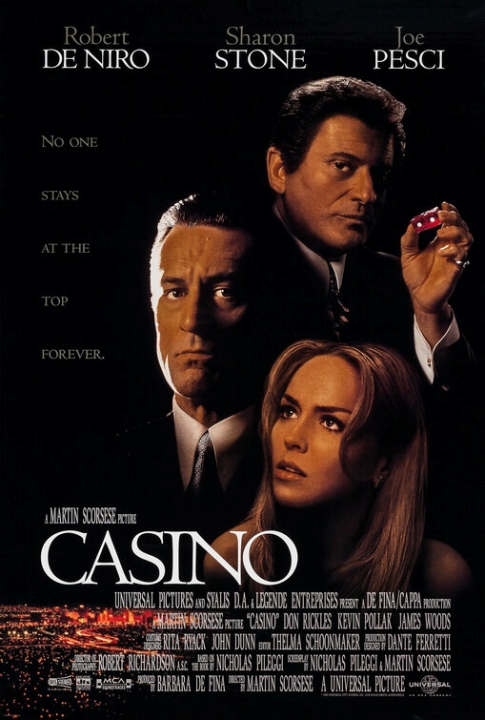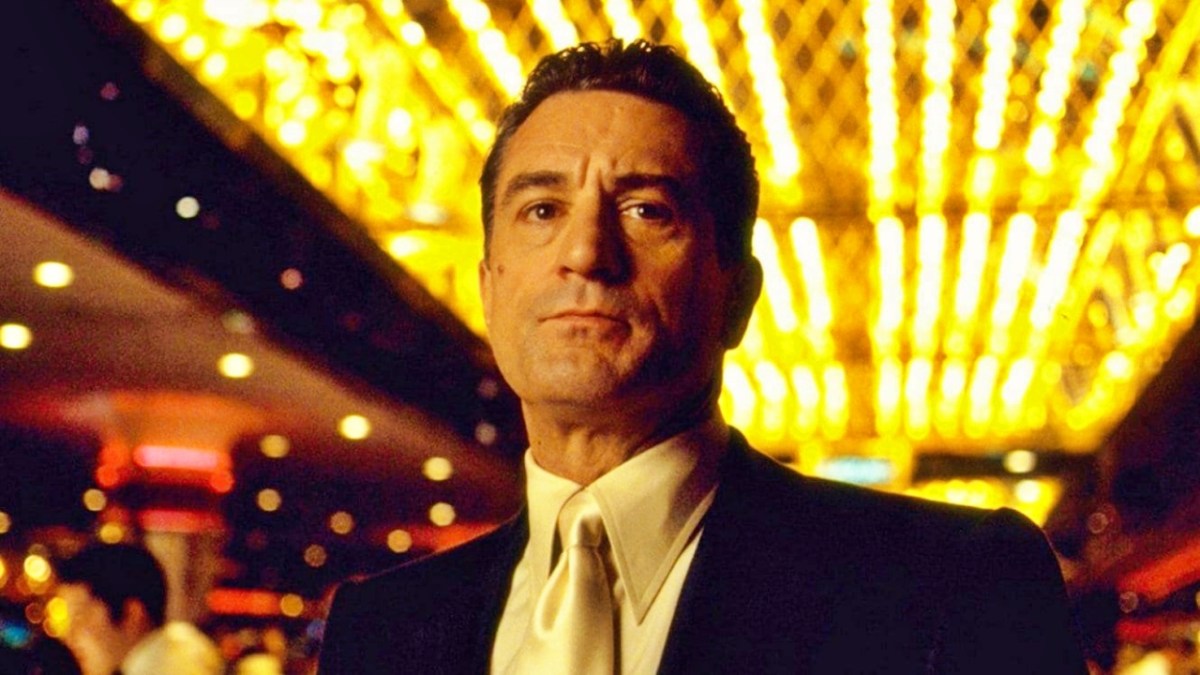Scorsese’s underappreciated 3-hour crime epic, about a high-end Las Vegas casino being run by an organised crime syndicate, is one of his most riveting films.

Dir. Martin Scorsese
1995 | USA | Crime/Drama | 178 mins | 2.39:1 | English
M18 (passed clean) for strong brutal violence, pervasive strong language, drug use and some sexuality
Cast: Robert De Niro, Sharon Stone, Joe Pesci
Plot: In the 1970s, a mafia associate is sent to Las Vegas to head the Tangiers Casino, working his way to the top in a corrupt mob world until things around him begin to crumble.
Awards: Nom. for Best Supporting Actress (Oscars)
Distributor: Universal
Accessibility Index
Subject Matter: Moderate – Organised Crime
Narrative Style: Complex
Pace: Normal
Audience Type: Slightly Mainstream
Viewed: Netflix
Spoilers: No
Underappreciated and often operating in the shadows of its closest cousin, Goodfellas (1990), Martin Scorsese’s Casino deserves critical reappraisal.
One of his most ambitious films, and running at three hours long (though 2019’s The Irishman kinda put its duration into further perspective), Casino sees Robert De Niro and Joe Pesci return not as mid-level mobsters, but high-level criminals with enormous control over the gambling business.
De Niro plays Sam Rothstein, who owns a casino in Las Vegas where the constant supply of cold hard cash goes into the hands of mafia bosses, while Pesci plays Nicky Santoro, a mafia enforcer helping to ‘protect’ everyone’s interests.
As violent and brutal as it gets from a Scorsese mob picture, Casino depicts the rise and fall of these hideously fascinating people, but the real revelation comes in the form of Sharon Stone (in her only Oscar-nominated performance), who holds her own against De Niro and Pesci as Sam’s money-obsessed socialite wife.
“When you love someone, you’ve gotta trust them. There’s no other way. You’ve got to give them the key to everything that’s yours. Otherwise, what’s the point?”
Casino is riveting from start to end, partly due to the wall-to-wall narration and dialogue that doesn’t let up, as well as Scorsese’s playful experimentation with editing and the camera that contributes to the film’s freewheeling visual style.
Some might argue that Casino is a more meandering and structurally less daring film than Goodfellas, but perhaps it is more of a case of their thematic and visual similarities being made more explicit than anything else.
Back in 1995, Casino might have felt derivative to many—but Scorsese simply took what was great with Goodfellas and expanded it into a different context. I think with time, Casino is starting to feel like a major unsung work, and one that could stand proudly on its own.
Grade: A
Trailer:
Music:












[…] Casino (1995) […]
LikeLiked by 1 person
[…] Casino (1995) […]
LikeLiked by 1 person
[…] Casino (1995) […]
LikeLiked by 1 person
[…] Casino (1995) […]
LikeLiked by 1 person
[…] Casino (1995) […]
LikeLiked by 1 person
[…] Casino (1995) […]
LikeLiked by 1 person
[…] Way deserves to come out of the shadow of Scarface (much like the similar problem with Scorsese’s Casino in relation to Goodfellas) and be recognised as one of the great American crime films of the ‘90s […]
LikeLike